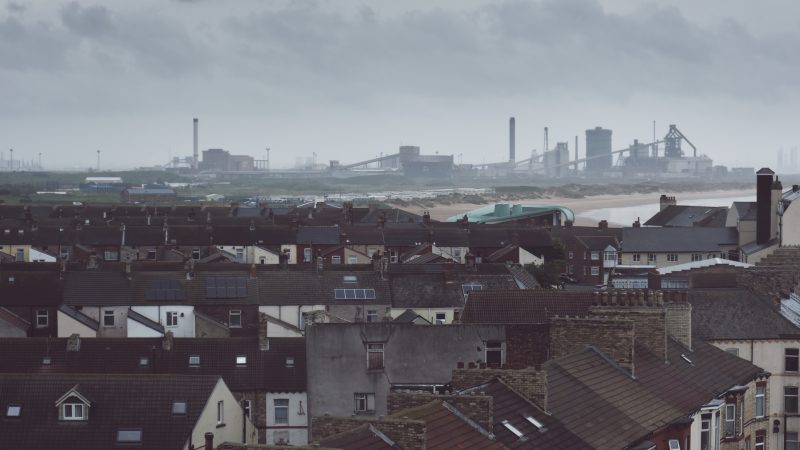
The story of the former SSI steelworks in Redcar is a cautionary tale about industrial change. In October 2015, the formerly busy steelworks closed for the last time. Since then, residents have grown used to press releases lauding the activities of the Teesside development association that has been charged with revamping the site.
Yet after half a decade of delay, the only jobs available on the site for former steelworkers are temporary demolition roles. These roles have no future after demolition completes, because no business has yet said it will use the 870-acre free enterprise zone; the promise made by Conservative mayor Ben Houchen to deliver 20,000 new jobs on the site looks a long way off. Today, a former heart of the community is a wasteland.
Unfortunately, there are ex-industrial areas right across the country with similar stories. Once a major employer or industry leaves an area, it is not replaced. That’s why some of the poorest parts of the UK are former industrial towns, former mining areas, and former fishing communities on the coast.
If the government is serious about “levelling up”, it needs to level up the places that have been left behind by departing industry. The UK has a shoddy track record when it comes to ensuring that new high-quality jobs replace the skilled jobs that communities were built around.
That’s not to say that workers don’t get new jobs: they do, but they tend to be lower paid and more precarious. As well as helping to make sure workers have the flexibility to transition into existing jobs in their communities, we need to create new, good-quality jobs.
Retraining and reskilling workers is key. In the wake of the SSI closure, there was a joint effort to deliver reskilling, bringing local training providers together with the council, workers and unions. The government offered up to £80m, and 180 jobs were created.
However, salaries of former steelworkers never recovered and workers in Redcar have seen their earnings fall substantially relative to the rest of the country since 2015 when the SSI site closed. Then, median gross weekly earnings were £531, and Redcar’s were £506.2 – only 4% below the national average. However, by 2019, the UK’s average median weekly earnings had grown to £585; whereas in Redcar they had fallen to £496, 15% lower than the national average. This has a knock-on impact both socially and across the wider service economy, as workers have less spending power.
Many former steelworkers moved into self-employment and service jobs, which are critical parts of our economy. However, such work must be complemented by industries like manufacturing, engineering, science and technology, which create jobs further down the supply chain. Covid-19 has highlighted the vulnerability of hospitality and retail sectors, and how important it is for local economies to have a strong manufacturing foundation.
To level up in a meaningful way requires powerfully directing investment into the industries of the future. We must create hubs that concentrate the required expertise (academic, business and union), training capability and investment for the green industrial revolution into one place. Through this, we can deliver strong diverse economies in every part of the country.
The SSI site, for example, is ideally placed to deliver on Boris Johnson’s pledge to make the UK a world leader in green energy, through wind power and carbon capture and storage. But all this needs to go much further and faster, to position places like Redcar back at the beating heart of industry. Britain’s ambition must extend to the full supply chain, with local sourcing of materials and local workers getting good quality jobs. It is critical that training at all skill levels is delivered to give workers the opportunity to be part of this future.
Place matters, and change is inevitable, but its price need not be livelihoods nor the destruction of communities. No part of the country should be left behind when industry closes. We must be able to give people hope by having a clear vision for what comes next. Until we do that, the people of Redcar, and thousands of others like them, will continue to be left behind.
Read Community’s report ‘A Just Transition? Managing the challenges of technology, trade, climate change and Covid-19′.




More from LabourList
‘Labour is being badly misled on housing’
Reeves bets on patience over populism
‘Energy efficiency changes must work for older private renters’